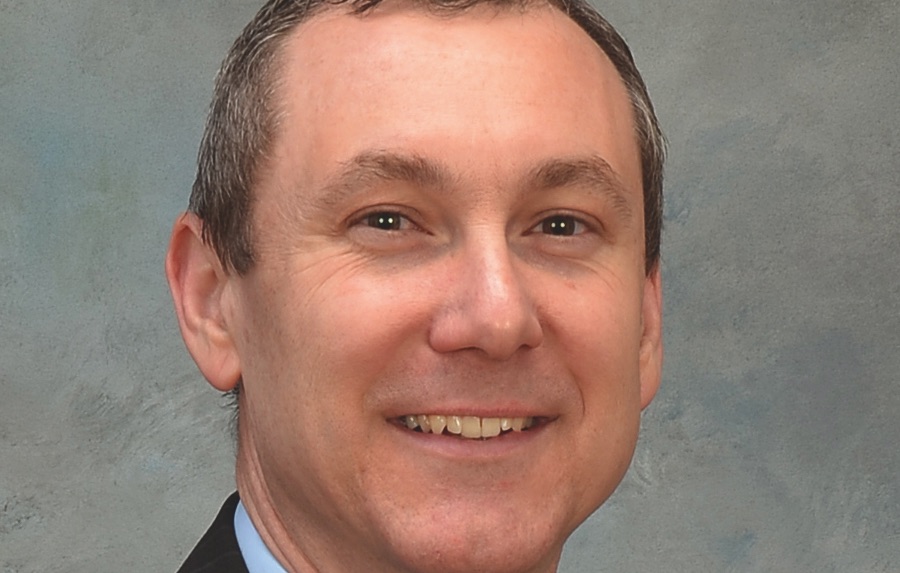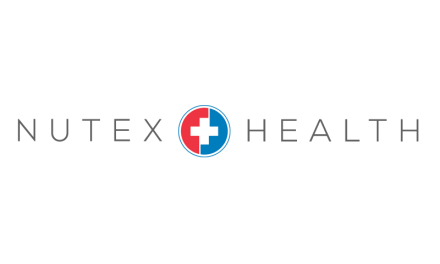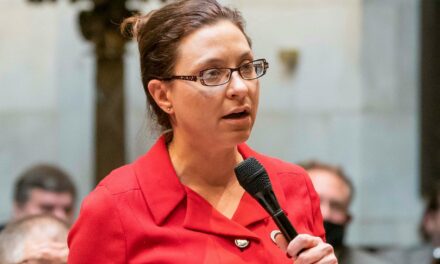
Heywood talks Aspirus’ future

Aspirus is engaging in innovative ways to recruit and keep doctors, according to CEO Matt Heywood.
That includes working with the Medical College of Wisconsin at its central Wisconsin campus and the University of Wisconsin on a family medicine residency program in Wausau.
They’ve also worked with local businesses on funding a scholarship program for medical students at the MCW campus that agree to work for Aspirus after their residency.
“I think that’s a pretty innovative approach to try to get people to get to know us, to accept our culture, to learn to like our communities, get to know the people in the communities, build relationships and then help them through a very costly educational process,” he said.
Aspirus is looking at how to expand that work to other professions facing labor shortages, like nursing, pharmacy and other areas.
Heywood talked about Aspirus’ future amid mergers in the state and a recent ranking that put the healthcare organization among the top 15 highest performing health systems in the country.
Edited excerpts are below.
WHN: This is the second year in a row that IBM Watson Health has recognized Aspirus as a top performing health system. What’s led to that?
MH: First, I would like to say that awards I think sometimes are viewed as just a dime a dozen. You get them, and what’s really behind them? The one thing I like about the IBM Watson award is that the IBM Watson award really just takes the data and analyzes the heck out of your data to really come back to say what is making you effective as a system. And they look at quality, patient satisfaction, cost and a number of other effectiveness factors. So it’s a true, overarching view of how you’re doing as a system. To be recognized by an independent party who’s just looking at the data, just analyzing the facts, is I think really refreshing and validating for us.
Because we as a team have tried to grow and expand our footprint in the last decade or so to serve our communities. We’ve had measured growth, we’ve had measured process to try and align and standardize and bring ourselves together. We’ve had to not just do it over time, but we’ve had to make tough decisions. You read a lot of literature out there. Not a lot of organizations, when they become a system, want to make all those tough decisions and they postpone some of those tough decisions or put them on the back burner. We’ve had to go through some of those tough decisions, and it’s good to see the validation that those tough decisions are improving our quality, improving our cost and making us a top 15 health system in the country.
WHN: What have been those tough decisions?
MH: When you think about it, we were probably eight different hospitals. And we have other business units, like home healthcare and other post-acute care elements. We were on different 403(b) plans, different health plans. We had different benefit structures with regards to comp, titling, the way people are bonused, electronic medical records – our EMRs were all different. So you have to make capital decisions.
But you’ve also got to make people decisions. And you’ve got to get people to buy in and be willing to change and do it in a positive manner and keep your engagement scores up and keep your people engaged in making the change happen. Those are just some of the things we’ve had to do, and we’ve had to do it pretty rapidly over the last six years. Heck, when we first started, we didn’t even have common name badges.
WHN: Aspirus recently assumed full control of Aspirus Arise, its health insurance joint venture with WPS Health Solutions. Are you planning any changes?
MH: We don’t see, even though we’re 100 percent owners, that it’s changed in any way, shape or form our direction and our goal with Aspirus Arise. We still view WPS as a strong partner. They still work with us. They just had to divest their 50 percent due to a governmental contract where there was a perceived conflict of interest the federal government thought they had. And they got a different opinion this cycle of contract than they got when we first did this joint venture. We still see them as a strong partner. We still see our vision and goal as the same.
Really our vision and our goal is to work with WPS and our communities and our businesses to not just grow the product and grow the product, but to develop a product that all of us in partnership are working on to try and improve the care of employees, the populations in our community, so we can improve the health and reduce the cost. We feel if we do that with this insurance plan, we can get the data quicker, we can get more thorough data. We can share that information amongst each other and hopefully improve the cost and improve the care in our communities. We’re excited about it. We’re seeing some beginnings of that ability and so we’re excited for the future.
WHN: Healthcare systems across the state are merging. How are you planning to stay competitive in a market where nearby health systems are growing?
MH: It’s interesting. If you read some literature out there, three or four years ago, it was everybody had to merge, everybody had to merge. Now if you read some literature, some people are starting to ask the question: “When is big too big? And what have you done with your size?”
So in Aspirus’ view, size is important to have market relevance and to have the ability to make the changes and do the things that you need to do. So there is some relevance to size. We believe we’re in that zone. We want to continue to look for opportunities to grow and partner with other organizations. We do believe we have a collaborative partnering style that gives us an opportunity for others to join and for us to continue to expand. But we also don’t think we need to expand to survive. We think we need to expand to improve our ability to service our patients in our rural communities.
We really think the benefit and the success factor is the stuff we talked about with the top 15 health system. Because if you can’t put the pieces together and those pieces don’t create a better common whole, you’re not going to really be able to get any created value to a merger of any type. And quite frankly, again, you look at some of the literature that’s being written, people are starting to ask the question, “Did you get the value for that merger that you claimed?” And I think we’re really proud that we’ve been getting that opportunity to show we can do it, but you have to do it in a measured way. You have to be careful you don’t grow too fast and you actually draw out the outcomes.
WHN: Gundersen Health System and Marshfield Clinic Health System recently announced merger talks. What’s your reaction?
MH: Actually, we weren’t surprised by it. Again, one of the values that we have as an organization is foresight. Our organization has looked out across the future as best as we can and we’ve mapped out what we think might or might not happen. So we’re not surprised that Marshfield is looking for a merger partner. We weren’t surprised when we found out that they were talking with Gundersen about merging.
Our view, and it’s one of the things I learned when I got here, when you look at healthcare, you can pick up a headline and things are changing every day. And if you constantly react to every change, you don’t have your own vision, you don’t have your own plan. And you’ve got to check that plan every so often – but you should have your own vision, your own plan, you should keep going and let the noise around you just be the noise and keep moving.
So Aspirus’ view is we weren’t surprised by it. Our view is that we have our plan and our plan is what we talked about. It’s been very successful. We’re going to stick to the plan and keep going and really aren’t losing any sleep over it.
WHN: You’re working on developing a $40 million wellness campus in Wausau with the YMCA. What’s involved with that?
MH: One of the successes we’re trying to strive for is how do you put our organization together to create a greater sum of its parts. We do believe that’s going to be the distinct factor that protects us in a variety of ways for the future that might come…when I’m out eating or someone talks to me, says “What do you do for a living?” I go, “I work at Aspirus. It’s a healthcare company.” I don’t say we’re a healthcare system. And the reason we don’t say we’re a system per se is because we have to talk about how are we going to care for you when your healthy and also how do we care for you when you’re sick. But 80 percent of the time, you’re healthy. So how do we work with our Aspirus Arise program to help design products, to design wellness programs? How do we help you think of Aspirus when you’re healthy? Then how do you think of Aspirus when you’re sick? But you’re only sick 20 percent of your life or 20 percent of the time that you might need to interact with Aspirus.
So our view with the Y is how do we embed ourselves into that healthy environment? So in partnership with the Y, we’re saying, how do we start to develop healthy community programs that start at the Y when you’re a child? They’ve also added and we’re building out a site for retirees. So how do we help people as they age? And how do we make sure they stay healthy as they age? So how do you have cooking programs, how do you have health fairs? And then, when they need our clinic, when they need our care, they can come across the street and we’ll be right there close by. So we’re trying to figure out how we embed ourselves in that 80 percent of the time when somebody is healthy. I give our community a lot of credit, our foundations, our city, the people in the community have all really rallied around this.
This article first appeared in the Wisconsin Health News daily email newsletter. Sign up for your free trial here.





